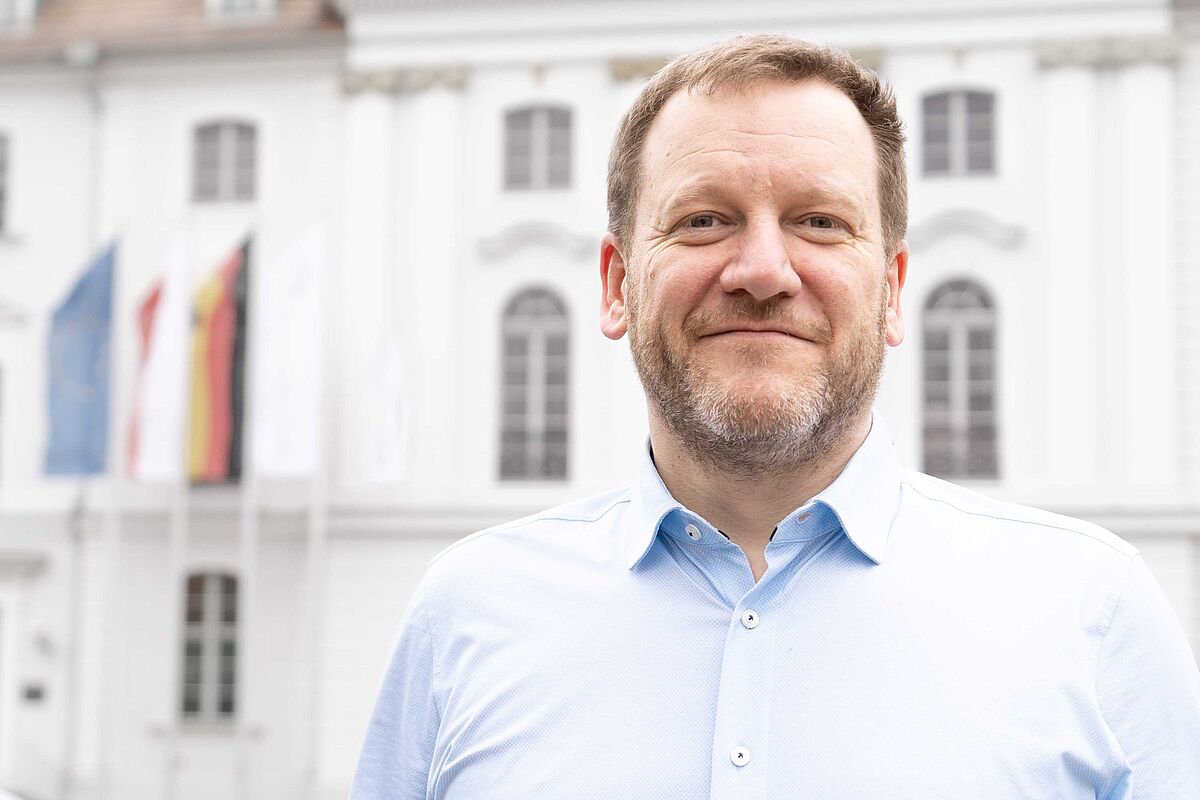
Professor Dr. Jochen Müller
Political Sociology and Methods of Political Science
Ernst-Lohmeyer-Platz 3, Room 3.10
Tel.: +49 3834 420 3180
jochen.muelleruni-greifswaldde
Supervisory Board Member - IRTG Baltic Peripeties
Consultation hours:
Registration via the online calendar.
Since October 2022
Professor of Political Sociology and Methods of Political Science
Department of Political Science and Communication Studies, University of Greifswald
October 2020 - September 2022
Professor of Domestic Policy of the Federal Republic of Germany
Department of Social Sciences, Humboldt-Universität zu Berlin
October 2015 - September 2020
Junior Professor of Political Sociology
Department of Political Science and Communication Studies, University of Greifswald
September 2013 - September 2015
Lecturer
Department of Government, University of Essex, Colchester.
September 2012 - August 2013
Research Assistant
Mannheim Centre for European Social Research (MZES), University of Mannheim.
Project: ‘Intra-party heterogeneity and its political consequences in European states’
April 2012 - August 2012
Research Assistant
Project: ‘Intra-party heterogeneity and its political consequences in European states’
October 2009 – March 2012
Research Assistant
Mannheim Centre for European Social Research (MZES), University of Mannheim.
Project: ‘Party competition in multi-level systems: A comparative analysis of programmatic strategies of regional and national parties, coalition forming patterns and government action in Western and Eastern European states’
July 2013
Doctorate (Political Science),
Faculty of Economics and Social Sciences, University of Potsdam.
Thesis: ‘Democratic responsiveness at regional level: A comparative study of the decision-making behaviour of voters and parties in European multi-level systems’
First reviewer: Steffen Ganghof, Second reviewer: Thomas Bräuninger
September 2007 - September 2009
Doctoral Candidate
Research Training Group ‘Institutions and Policies: Patterns of Reciprocity (IPPR)’, Faculty of Economics and Social Sciences, University of Potsdam.
July 2007
Diplom (Administrative Sciences)
University of Konstanz
Diplom thesis: ‘Patterns and Determinants of the Dynamics of Party Positions – An Analysis of the Party Systems in the German Federal States’
First examiner: Thomas Bräuninger, Second examiner: Adrian Vatter
September 2004 – June 2005
Study of Political Science (Erasmus)
Department of Politics and International Studies, University of Warwick, Coventry, United Kingdom.
October 2001 – July 2007
Study of Administrative Sciences
Department of Political Science and Administrative Sciences, University of Konstanz
Founding: German Research Foundation
Period: 2018-2024
Project heads: Prof. Dr. Jochen Müller, Prof. Dr. Andreas Blätte (University of Duisburg-Essen), Dr. Marcel Lewandowsky (Helmut-Schmidt-University Hamburg), Dr. Christian Stecker (University of Mannheim, Mannheim Centre for European Social Research)
The enduring electoral success of the Alternative for Germany (AfD) marks the first establishment of a right-wing populist party in the party system of post-war Germany. In light of this historical turning point, political scientists need to investigate the reasons for the AfD’s rise and how it transforms democratic competition in Germany. Many studies have already addressed these questions with a specific interest on the AfD’s electorate, its policy positions, political leadership and strategies. Furthermore, its role in the German state parliaments has been assessed in various case studies and comparative studies.
However, major lacunae remain. Having a strong focus on the AfD, many studies neglect how the AfD interacts with established party groups and how the parliamentary arena has changed under its presence. Moreover, while studies are well informed by the literature on populism, too few insights are derived from the literature on legislative studies and party competition. Existing studies are also limited with regard to the parliaments, behavioural aspects and the period of investigation they study.
Our project aims to fill this gap and pursues three specific goals. First, using various behavioural indicators, we will analyse the patterns of the AfD’s parliamentary behaviour as well as the underlying preferences and strategies. Second, we will examine the interaction between the AfD and established parliamentary party groups to gain a comprehensive understanding of party competition in the Landtage. Third, synthesizing insights from the literature on populism, party competition, and legislative studies, we will explain the variation in the AfD’s behaviour and in the patterns of parliamentary interaction. Our main focus is on parties’ parliamentary rhetoric, the framing of topics, issue attention, and ideological as well as issue-specific positions. We will analyse parliamentary speeches, parliamentary initiatives (e.g. parliamentary questions, resolutions, amendments) and behavioural data (e.g. voting behaviour for specific issues).
Our project advances the state of the art in various respects. First, it provides comprehensive insights into the role of the AfD in parliaments, which will also be of interest to the international study of populism. Second, it employs and enhances the most recent techniques of computer-based text mining in order to compile a novel and extensive data set. These data not only allow for a rich description and robust tests of our hypotheses but will also enable other scholars to investigate questions that are beyond our project. Third, it promises robust and rich insights by using the most recent qualitative and quantitative tools of text analysis, created by the computational social science and eHumanities.
Research Project: Politics in Rural Regions: Political Options and Intentions Based on the Example of Agricultural Policy
Research Project: Politics in Rural Regions: Political Options and Intentions Based on the Example of Agricultural Policy
